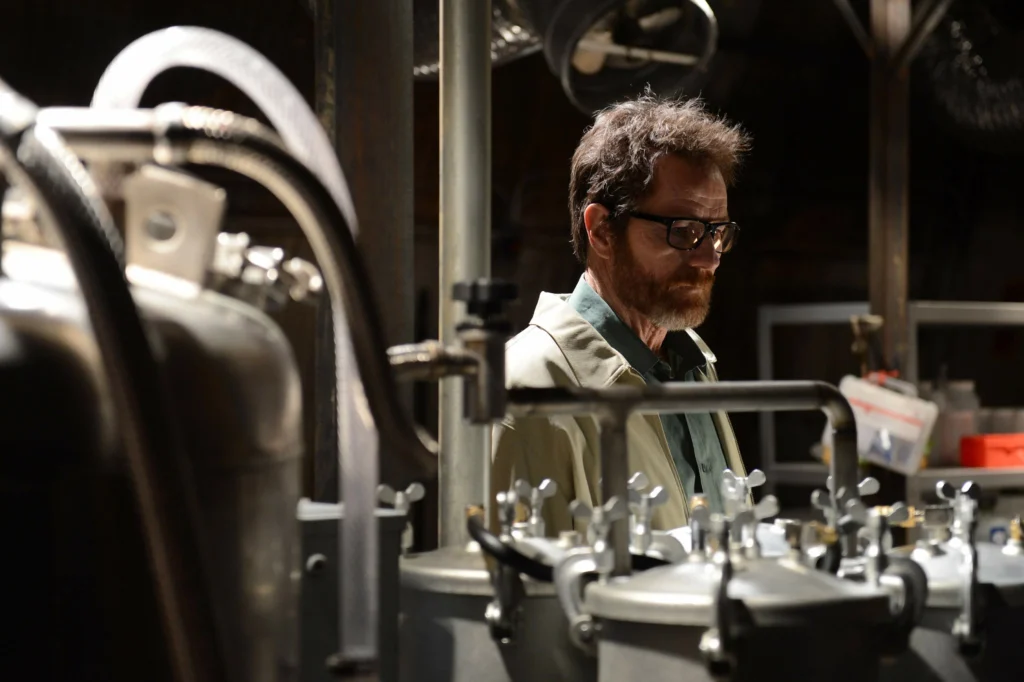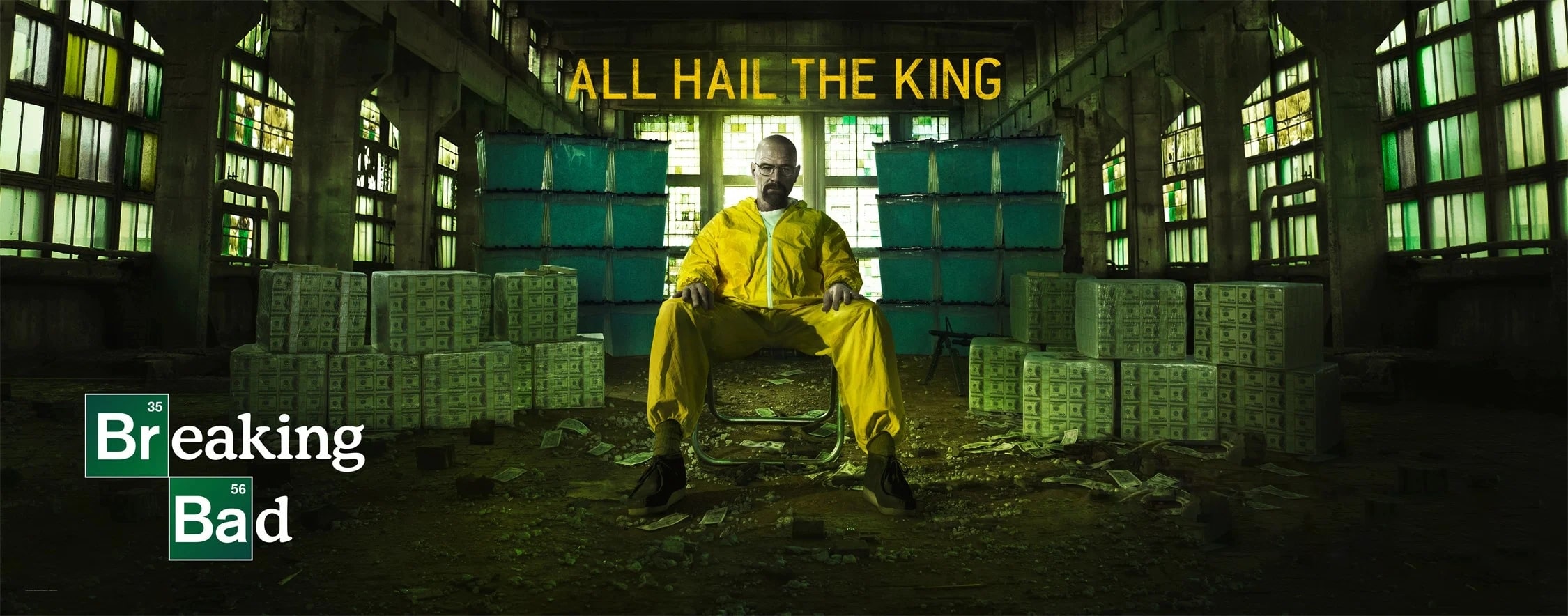When it comes to iconic television characters, few have left as indelible an impression as Walter White from the groundbreaking series “Breaking Bad”. Created by Vince Gilligan, the show takes us on a harrowing journey through the life of a high school chemistry teacher turned methamphetamine manufacturer. But who is Walter White, really? Is he a desperate family man pushed to the brink, or is he a ruthless criminal mastermind? In this article, we’ll delve deep into the multi-faceted character that is Walter White, focusing on the man, the myth, and the meth maker that he becomes.
The Man: Walter White as a Family Man
In the early episodes of “Breaking Bad”, we meet Walter White as a mild-mannered high school chemistry teacher. He’s a family man, devoted to his wife, Skyler, and their teenage son, Walter Jr., who has cerebral palsy. Walter’s life takes a dramatic turn when he is diagnosed with terminal lung cancer, a revelation that serves as the catalyst for his transformation. Faced with the grim reality of his limited time and the financial burden his medical bills would impose on his family, Walter makes a desperate decision. He decides to use his expertise in chemistry to produce and sell high-quality methamphetamine.
This initial characterization of Walter as a family man is what makes his subsequent journey so compelling. It’s easy to empathize with his initial motives, which are rooted in a desire to secure his family’s financial future. This is the “walter white on breaking bad” that many of us thought we knew, a man pushed to the edge by circumstances beyond his control. However, as the series progresses, we come to realize that this is just one facet of a much more complex individual.

The Myth: The Birth of Heisenberg
As Walter delves deeper into the world of drug manufacturing and distribution, a new persona emerges: Heisenberg. This name, inspired by the physicist Werner Heisenberg, becomes synonymous with fear and respect in the Albuquerque drug scene. Donning a pork pie hat and sunglasses, Heisenberg is a far cry from the humble chemistry teacher we first met. This transformation is not just physical; it’s psychological and moral as well.
Key moments contribute to this metamorphosis, such as when Walter lets Jane, Jesse Pinkman’s girlfriend, die or when he orders the killing of Gale, his lab assistant. These actions reveal a darker, more ruthless side to Walter, one willing to compromise ethics for self-preservation and power. This is the “walt on breaking bad” that becomes the stuff of legends, a man whose actions reverberate far beyond the confines of his meth lab.
The birth of Heisenberg raises questions about identity and morality. Is Walter White still the same man when he’s Heisenberg, or has he become an entirely different person? The blurred lines between these two personas add layers of complexity to an already intricate character.

The Meth Maker: The Kingpin of Albuquerque
Walter White’s transformation into Heisenberg is not just a change in personality; it’s a climb to power. As he partners with Jesse Pinkman, a former student, they begin to produce methamphetamine of unparalleled purity. Their blue meth becomes a brand, a symbol of quality in a market flooded with subpar products. This is where Walter’s brilliance as a chemist truly shines, allowing him to dominate the drug trade in Albuquerque and beyond.
However, this rise to power comes at a cost. Walter becomes increasingly involved in violent confrontations, from dealing with rival drug dealers to evading law enforcement. His actions lead to a ripple effect of consequences, affecting everyone around him, including his family. This is the “walt in breaking bad” that becomes the kingpin, the mastermind behind a drug empire that grows larger and more dangerous with each passing episode.
Walter’s expertise in meth production is not just about chemistry; it’s about business acumen, strategic planning, and a willingness to cross ethical boundaries. He becomes a man who uses his intelligence and resources not for the betterment of society, but for personal gain, no matter the cost.
The Complexity of Walter White
As we navigate through the labyrinthine plot of “Breaking Bad”, one thing becomes abundantly clear: Walter White is not a one-dimensional character. His actions, though often morally reprehensible, are driven by a complex interplay of motives. Is he a villain? Certainly, his actions lead to suffering and even death for many. But is he also a victim of circumstance, a man who felt cornered by life’s challenges and made choices he later regretted?
This complexity is what makes Walter White one of the most compelling characters in television history. He challenges our understanding of good and evil, forcing us to confront our own moral compass. This is the Walter on “breaking bad” that keeps audiences debating long after the series has ended. Is he a hero? A villain? Or something in between?
Walter White’s complexity extends to his relationships as well. His partnership with Jesse Pinkman evolves from that of a teacher-student dynamic to something far more intricate, fraught with paternal feelings, betrayal, and co-dependency. Similarly, his relationship with his wife, Skyler, deteriorates as she becomes increasingly involved in his criminal activities, adding another layer of complexity to his character.
The Legacy: Impact on Pop Culture
Walter White’s journey may have ended with the series finale of “Breaking Bad“, but his impact on pop culture and television history is far from over. The character has inspired a plethora of memes, fan theories, and academic discussions. He’s been the subject of numerous articles, books, and even college courses that dissect his complex personality and the ethical questions the series raises.
This is the Walter from “breaking bad” that has transcended the boundaries of the show to become a cultural icon. His character has been analyzed from psychological, sociological, and ethical perspectives, making him one of the most studied figures in modern television. The show itself has won numerous awards, including 16 Primetime Emmy Awards, further cementing its legacy as one of the greatest TV shows of all time.
Walter White’s influence is not just limited to the realm of entertainment. His character has sparked debates about the American healthcare system, the ethics of drug manufacturing and distribution, and even the nature of good and evil. In many ways, Walter White has become a lens through which we examine broader societal issues.
Conclusion
Walter White is more than a TV character; he’s a phenomenon. His journey captivates audiences worldwide. He raises questions about morality and identity. This makes him an iconic figure in TV history. This is the “walter white from breaking bad” we’ll remember for years.
In “Breaking Bad”, we see a man unravel. We witness the birth of a myth and a meth kingpin. Walter remains a flawed yet fascinating individual. The show’s storytelling is brilliant. Whether a hero or villain, his legacy is undeniable.
As we close, we’re left with more questions than answers. This is a fitting tribute to a complex character. His story may be over, but his impact is everlasting.







